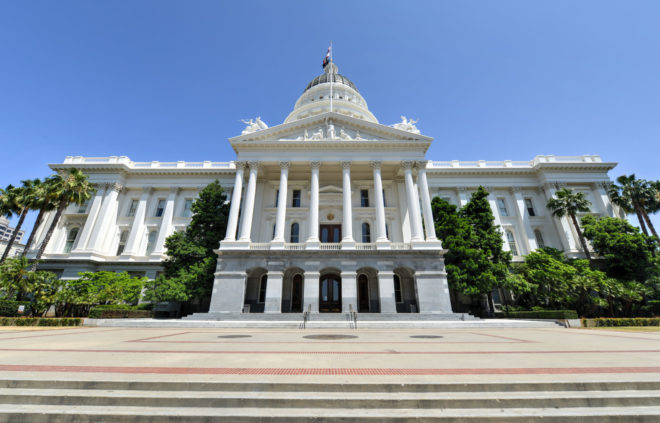 It took me a long time to come to grips with the nature of the state. Once I had done so, at least so far as the fundamentals are concerned, I found it almost amusing to ponder how so many analysts and writers, some of them deep, first-rate thinkers, discuss the matter. For the great preponderance of them, the state is almost a genteel topic. They discuss the state as if it were actually created by well-meaning philosophers sitting around comparing models of truth, beauty, and goodness. They speak as if the state were composed of people who would, for example, deal honestly, openly, faithfully, and humanely with those subject to their authority. Many take it to be innocuous in itself, a sort of puppet dancing at the end of strings pulled here and there by voters in democratic elections or by capitalists, oligarchs, big bankers, or gnomes of Zurich.
It took me a long time to come to grips with the nature of the state. Once I had done so, at least so far as the fundamentals are concerned, I found it almost amusing to ponder how so many analysts and writers, some of them deep, first-rate thinkers, discuss the matter. For the great preponderance of them, the state is almost a genteel topic. They discuss the state as if it were actually created by well-meaning philosophers sitting around comparing models of truth, beauty, and goodness. They speak as if the state were composed of people who would, for example, deal honestly, openly, faithfully, and humanely with those subject to their authority. Many take it to be innocuous in itself, a sort of puppet dancing at the end of strings pulled here and there by voters in democratic elections or by capitalists, oligarchs, big bankers, or gnomes of Zurich.
Screenwriter-director Courtney Balaker has achieved a rare feat with her recently released movie Little Pink House (based on the book of the same name). She has crafted a story about the machinery of local government without losing the creative flare that hooks an audience and engages them to the very end, all in the name of social justice. At the same time, Balaker introduces a broad audience to an esoteric yet underappreciated power of government that, in the wrong hands, can become one of the biggest threats to individual liberty.
Little Pink House tells the sordid tale of how the city of New London, Connecticut, seized private homes through eminent domain to subsidize private corporate development. The actual case, Susette Kelo et al. vs City of New London et al., set off a firestorm of controversy as legislatures across the nation adopted legislative reforms to limit its use.
FinCEN Form 114, Report of Foreign Bank and Financial Accounts, is a mandatory report to the U.S. Treasury Department. It is not connected, directly at least, with payment of income tax. My accountant tells me that failure to file each year can result in serious penalties, and I have confirmed that he is not joking. Many real crimes bring forth much lighter penalties from the government.
Think about this, however. It is not a crime to have a foreign bank account or other foreign financial account. So, the U.S. government is threatening to punish—and, I presume, sometimes actually punishing—people who merely fail to report doing what is perfectly legal for them to do.
 Leland Yeager, who was an economics professor at the University of Virginia and at Auburn University, passed away April 23 at the age of 93. Yeager’s best-known academic work was in monetary economics and international economics. Defenders of freedom have lost one of their sharpest minds.
Leland Yeager, who was an economics professor at the University of Virginia and at Auburn University, passed away April 23 at the age of 93. Yeager’s best-known academic work was in monetary economics and international economics. Defenders of freedom have lost one of their sharpest minds.
Yeager was a classical liberal scholar who championed free markets and freedom more generally. His work extended beyond economics narrowly defined, into ethics and social philosophy. He was also a long-time associate of the Independent Institute as a research fellow and founding member of the Board of Advisors for and contributing author to The Independent Review.
Yeager joined the economics department at the University of Virginia and was part of a distinguished group of faculty at the Thomas Jefferson Center, where the subdiscipline of public choice was born and nurtured. His colleagues at Virginia included James Buchanan, Warren Nutter, Gordon Tullock, and Ronald Coase. Yeager’s scholarly work and his razor-sharp intellect made him completely deserving of such stellar colleagues.
After three decades at the University of Virginia, Yeager moved to Auburn University where he finished his career. I was privileged to have overlapped with his stay there, and am honored to be able to say he was my colleague. If I were asked to give an example of what it means to be a scholar, Leland Yeager is the individual I would choose as the best example.
Leland was very well-read. He knew the economics literature, but also was familiar with ideas well beyond economics, and he had a way of putting ideas together in a compelling and logical way. More than once, my conversations with Leland led me to insights I would not have had without the benefits of his careful reasoning.
 Every social thinker since antiquity has complained that contemporaneous society was in descent.
Every social thinker since antiquity has complained that contemporaneous society was in descent.
The philosopher of history Oswald Spengler, who stressed destiny over causality, characterized The Decline of the West (1926) as the final stage in the evolutionary cycle of culture and civilization, during which “Late-Classical man [re]turns to the practice of the cults … dispense[s] with proof, [and] desire[s] only to believe and not to dissect.”
More recent thinkers have stressed causality over destiny. In the 1990s, the sociologist Robert Putnam launched his now-famous Bowling Alone (2000) thesis, which sought to explain the apparent decline of civic engagement, and with it, the decline of social capital. Putnam defined “social capital” as “connections among individuals—social networking and the norm of reciprocity and trustworthiness that arises from them.” Putnam concluded that the decline of “social capital is a cause, not merely an effect, of contemporary social circumstances [i.e., general malaise].” Putnam attributed this decline principally to “Americans’ love affair with television entertainment … [and also to] a pervasive and continuing generational decline in almost all forms of civic engagement,” which he attributed, as a first cause, to the Great Depression and Second World War.
 This week marks the 32nd anniversary of the Chernobyl nuclear accident. Modern perceptions of Chernobyl often picture a decaying Soviet landscape forever frozen in the 1980s. A quick Google search for “Chernobyl disaster” returns images of empty classrooms with peeling wallpaper and a dilapidated amusement park, full of rusted bumper cars and overgrown with weeds. They are eerie sights to behold, and it is little wonder that they capture our imaginations.
This week marks the 32nd anniversary of the Chernobyl nuclear accident. Modern perceptions of Chernobyl often picture a decaying Soviet landscape forever frozen in the 1980s. A quick Google search for “Chernobyl disaster” returns images of empty classrooms with peeling wallpaper and a dilapidated amusement park, full of rusted bumper cars and overgrown with weeds. They are eerie sights to behold, and it is little wonder that they capture our imaginations.
While the Chernobyl meltdown truly was a disaster, the perceptions and misunderstandings that surround the accident often undermine one of the major benefits of nuclear energy: its relative safety.

The U.S. Food and Drug Administration recently issued a mandatory recall for Triangle Pharmanaturals, a Las Vegas-based herbal supplements company. The company’s products were linked to a shipment of kratom which tested positive for salmonella. In most cases, companies comply when the FDA recommends a product recall. Triangle Pharmanaturals, however, was not cooperative with the agency’s request, failing to return phone calls and respond to an email.
This is the first time the FDA has issued a mandatory recall for a contaminated food item. While the FDA has long had the authority to order mandatory recalls for drugs, it was granted the power to issue mandatory recalls for food products under the Food, Safety, and Modernization Act of 2011. It is also the first time the FDA has exercised this power.
The powers in London are grappling with a rash of stabbings and wondering what to do. The statist instinct is to take knives from the people. That’s the American response to gun violence and the British response to knife attacks. Yesterday The Express ran a headline: “London bloodbath: 60th violent murder in London just yards from Corbyn’s home.” Reuters reports that “London police investigated more murders than their New York counterparts did over the last two months, statistics show, as the British capital’s mayor vowed to fight a ‘violent scourge’ on the streets.”
But shouldn’t London be one of the safest cities in the west? According to the BBC: “The UK has some of the toughest gun control laws in the world. If you want to own a gun, it is very difficult to do so. In short, it has been designed to put as many barriers in the way as possible and to assume the worst, rather than hope for the best.” Such laws are being demanded by school children and leftists as the answer to school shootings and violence in America. What gives? What is the real problem?

Proposed legislation, AB-2943, making its way through the California legislature, is the latest example of why east coast folks see California as the land of fruit and nuts. Humor aside, it is also why diverse groups such as Orthodox Christians, libertarians, and conservatives fear the radicalism of the Left and are concerned about fundamental values of speech and expression. Trends often start in California and this threat to free speech is most disturbing.
The proposed legislation seeks to modify the state’s law related to unlawful business practices. The current version of the statute is not that much different from most states’ Unlawful Trade Practice Acts. It prohibits a seller from making misrepresentations about goods offered for sale. For example, a seller could not claim that a certain toothbrush is endorsed by the American Dental Association when that is not the case.

Earlier this month, the U.S. Food and Drug Administration released an order indicating its intent to restrict the sale of the contraceptive device Essure, the only FDA-approved nonsurgical permanent birth control method.
Essure is extremely effective, over 99 percent successful, and popular. As of July 2017, over 750,000 devices have been sold worldwide.
The use of Essure requires the insertion of a small coil device into the patient’s fallopian tube, preventing sperm from reaching the egg. Because it doesn’t require surgery, the procedure avoids the risks associated with tubal litigation (commonly referred to as “getting your tubes tied”) and other surgical methods to avoid pregnancy.
The primary motive behind the FDA’s involvement is concern that patients using Essure are not sufficiently informed about its risks. In the words of FDA Commissioner Scott Gottlieb, “We’ve been closely evaluating new information on the use of Essure, and based on our review of a growing body of evidence, we believe this product requires additional, meaningful safeguards to ensure women are able to make informed decisions about risk when considering this option.”





